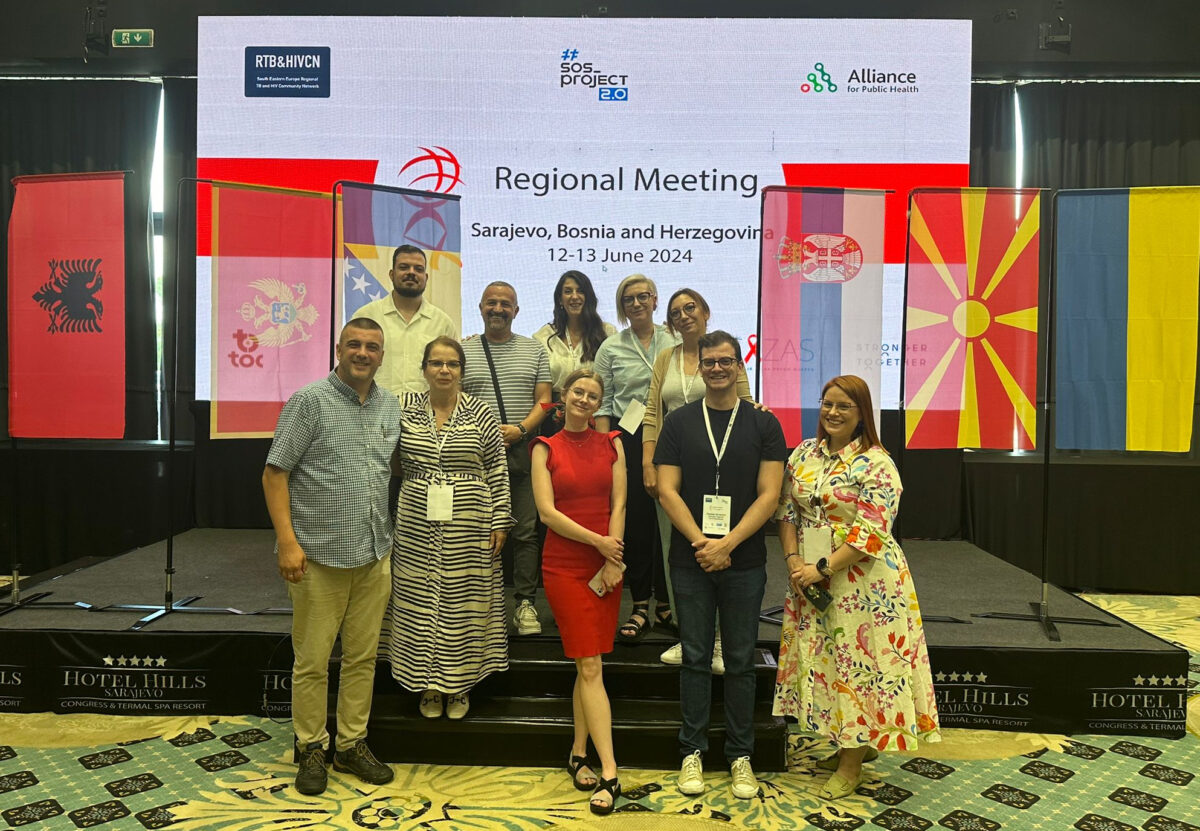12-13 June, 2024, Sarajevo hosted an important meeting of REActors from Albania, Bosnia and Herzegovina, Montenegro, Northern Macedonia, and Serbian, within the framework of the SOS 2.0 Regional Program 2022-2024, focusing on the sustainability of the HIV response in these five countries of South Eastern Europe. The event, organized by the South Eastern Europe Regional TB and HIV Community Network (SEE RCN)together with the Alliance for Public Health, brought together 40 participants, including national REActors and pre-exposure prophylaxis (PrEP) experts.
On the first day of the meeting, participants discussed the goals, objectives, and expected outcomes of the event. The REAct section provided an overview of the program’s achievements and discussed the challenges faced by the teams between 2022 and 2024. Each of the five countries presented their challenges and problem areas, followed by recommendations for improving the program at the national level. Participants also brainstormed on how to promote REAct and increase client outreach, discussed strategic cases and advocacy methods, and well as how to achieve sustainability of the REAct program in the Southeast Europe region.
At the same time, another section discussed the current situation with PrEP implementation in five countries of the region. The experience and achievements of PrEP programs over the last two years, clinical aspects of pre-exposure prophylaxis use, and the development and discussion of PrEP protocols were reviewed.
The second day of the meeting focused on discussing the progress, challenges, and plans for REAct and PrEP implementation. Representatives from each country shared their successes and challenges and provided recommendations for improvement. Fast Track Cities initiative, ARV price reduction, self-testing and decentralized testing, and social contract mechanisms were also touched upon. Each of these topics was discussed taking into account progress, challenges, and plans, with mandatory feedback from country representatives and the development of recommendations.
Victoria Kalyniuk, REAct Regional Coordinator, participated in this meeting and emphasized the importance of using REAct to improve the situation with gender barriers in the Balkans: “The country presentations and our discussions demonstrated that the use of REAct has a huge potential to overcome gender barriers in access to services for key groups. Thus, the research conducted by the Eurasian Women’s Network on AIDS shows how difficult the situation remains in the region of South Eastern Europe and how important it is to implement REAct in new areas to improve this situation and ensure equal access to necessary services for all”.
The meeting concluded with final discussions and identification of the next steps. The event was an important step towards strengthening the sustainability and effectiveness of the HIV response in the South Eastern Europe region, providing participants with an opportunity to share experiences, discuss current challenges, and develop strategies for further improvements.
Also read:
Solidarity and action: International AIDS Candlelight Memorial


